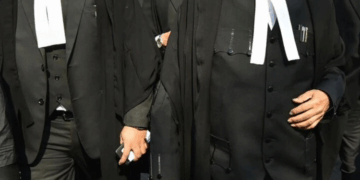Have you ever been certain you left your car keys on the dining table, only to find them sitting on the kitchen counter? Or felt confident a friend said “6 p.m.” when, in fact, they said “7 p.m.”?
If so, you’ve experienced one of psychology’s most intriguing quirks: the false memory effect—when people vividly recall events that never actually occurred or misremember real ones. These aren’t simple lapses in attention but rather deeply convincing “memories” that feel just as real as authentic ones.
What Is the False Memory Effect?
Contrary to popular belief, memory isn’t like a video recording that plays back reality. It’s reconstructive, meaning every time we recall an event, our brains rebuild that memory from fragments—sensory details, emotions, and external cues.
During this mental reconstruction, errors can easily slip in. Over time, these small inaccuracies can blend seamlessly into the story, making the false detail feel indistinguishable from the truth. Neuroscientists have found that the hippocampus (the brain’s memory centre) and prefrontal cortex (responsible for reasoning and narrative building) often work together to “fill in the gaps” when parts of a memory are missing—sometimes inventing details that never existed.
For example, you might recall the face of a childhood friend’s parent, but your brain may unknowingly blend it with the face of a teacher or neighbour. What feels like memory is, in fact, imagination cleverly disguised as truth.
How False Memories Form
False memories don’t form at random. They are shaped by psychological and social influences that subtly distort how we store or recall information.
- Suggestion & Leading Questions
When people are asked suggestive questions—such as “Did the man have a beard?”—they often “remember” the beard even if it wasn’t there.
A classic experiment by Elizabeth Loftus in the 1970s showed that when witnesses were asked how fast cars were going when they “smashed” versus “hit” each other, those who heard “smashed” later recalled seeing broken glass that never existed.
- Misinformation
Exposure to incorrect information after an event can reshape your original memory. For instance, hearing others describe an accident can alter what you remember about it. This “post-event information effect” is why eyewitness accounts often contradict each other—and why news reports can unintentionally reinforce errors.
- Imagination Inflation
Simply imagining an event can make it feel real. Studies show that people who imagine themselves doing an action—like shaking hands with a famous person—may later “remember” it as a genuine experience.
- Association & Repetition
Memories from different experiences can merge. Repeating a false detail, even jokingly (“Remember that time we met Taylor Swift?”), can eventually make it feel authentic. The more often we recall or retell a memory, the more it evolves—often in subtle, unnoticed ways.
Famous and Everyday Examples
- The Mandela Effect
Many people vividly “remember” Nelson Mandela dying in prison in the 1980s, though he was released and lived until 2013. This collective misremembering, known as the Mandela Effect, includes other pop-culture mix-ups like “Berenstain Bears” (often recalled as Berenstein) or the non-existent “Shazaam” movie starring Sinbad.
- Eyewitness Testimony
In legal settings, false memories can have devastating consequences. The Innocence Project reports that about 70% of wrongful convictions overturned by DNA evidence involved mistaken eyewitness identification—often shaped by suggestive questioning or stress during the event.
- Pop Culture Misquotes
Fans of Star Wars often quote Darth Vader as saying, “Luke, I am your father,” when the real line is “No, I am your father.” Similarly, many believe the Monopoly man wears a monocle—he doesn’t. These examples show how repetition and cultural sharing reinforce collective false memories.
- Everyday Mix-Ups
You might swear you left your phone on your desk when it’s really in your bag. Or remember eating a cereal from childhood that wasn’t sold until years later. Families often argue over “who said what” during a holiday dinner—each person certain their memory is correct.
Why It Matters
False memories aren’t just amusing—they have serious implications:
- In the legal system: Eyewitness errors can send innocent people to prison.
- In therapy: Suggestive techniques, especially in recovering “repressed memories,” may create false recollections of traumatic events.
- In daily life: Misremembering details can affect relationships, job performance, and personal credibility.
Understanding false memories helps us recognize the fragility of human memory—and why humility in our certainty is sometimes necessary.
Tips to Reduce False Memories
Although we can’t eliminate false memories, we can reduce their impact with mindful strategies:
- Write Early: Record details soon after events—journaling locks memories before they distort.
- Beware of Suggestion: Ask neutral, open-ended questions when discussing events.
- Cross-Check Facts: Compare your memories with reliable evidence like messages or photos.
- Avoid Filling Gaps: If unsure, resist the urge to “fill in” missing details.
- Practice Mindful Recall: Ask, “Did I see this, or did someone tell me about it?”
- Limit Group Influence: Just because others agree doesn’t mean it’s true.
- Use External Reminders: Photos, notes, and recordings serve as memory anchors.
- Keep Your Brain Healthy: Good sleep, nutrition, and mental balance strengthen accurate recall.
Conclusion
The false memory effect reveals an essential truth: our minds are storytellers, not cameras. Memory’s power lies in its flexibility—it helps us learn, empathize, and imagine—but that same flexibility makes it unreliable.
By staying self-aware, documenting key moments, and questioning our recollections, we can protect ourselves from the subtle distortions that memory weaves over time.
So next time you’re sure of a memory, pause and ask:
Is this what truly happened—or what my mind made me believe?
The writer is member of Faculty of Mathematics, Department of General Education SUC, Sharjah, UAE. Email: reyaz56@gmail.com



